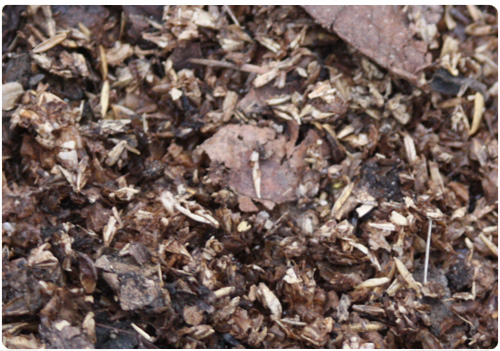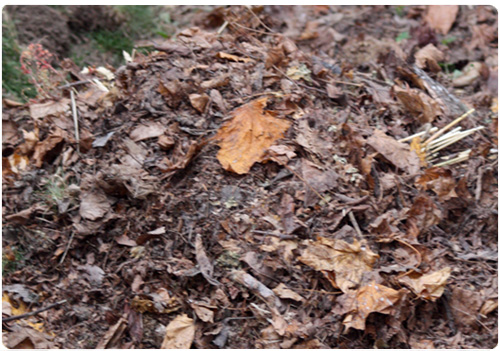Yard trimmings and food residuals together constitute 23 percent of the U.S. waste stream, according to the EPA. Pretty gross. However that can be reduced with a little thing called compost!
Compost is decomposed organic matter that creates a nutrient-rich, chemical-free fertilizer and helps prevent plant disease, all while reducing the amount of junk you’re putting into landfills. Plus it’s totally free.
Getting Started:
Compost needs a good balance of “green” matter (nitrogen) and “brown” matter (carbon), plus the standard oxygen & water. Luckily, none of this is hard to come by!
Pick a dry, shady spot or large compost container for your pile (mine is behind the garage…it’s not exactly pretty stuff). Toss green matter and brown matter in the pile, watering if it starts getting too dry. Compile food waste from your house and yard waste and continue adding to the pile, trying to keep the brown:green ratio fairly equal. Use a pitchfork to turn and aerate the pile on a weekly or bi-weekly basis, rotating the dry materials into the middle. Once the matter is dark, clumpy and resembling dirt – usually the bottom of the pile first – it’s ready!
 Now that the, er, dirty work is done, you have two options for using it in your garden:
Now that the, er, dirty work is done, you have two options for using it in your garden:
A: Scoop a trowel-full into the hole that you’ve dug for your plant and place plant on top or spread the compost around the base of your established plants. Mix well with surrounding dirt.
B: Create a “compost tea” by putting compost into a strainer bag or cheesecloth and letting it steep in hot water. Transfer to a spray bottle and spray at the base of plants or directly onto non-edible plants.
What You Can Compost:
grass clippings
dead leaves & flowers
eggshells
dryer lint
coffee grounds & filters
paper – especially shredded
paper towels and tissues
cardboard tubes, wood chips & sticks
spoiled fruits & vegetables
wine
stale bread
vacuum dust
spent grain (if you happen to homebrew)
What You Can’t:
animal-based food products like dairy, meat scraps, bones
pet poo
chemically treated yard waste
fatty or oil-based products
invasive or diseased plants
The Best Compost Accessories:
Because you’re not going to carry each piece of lettuce or every lint ball out to your pile, invest in a small kitchen container to stash your waste in. Kitchen compost bins have come a long way in both function (read: odor free!) and style so pick your favorite:

Clockwise from top left:
Exaco Trading Kitchen Collector, Wheeled Trash Can, Garden Compost Bin, Bokashi Indoor Composter, Copper Compost Pail, Norpro Red Ceramic Compost Keeper, Odor Free Compost Pail (my pail at home!)
Composting in an Apartment:
Since I have a yard, it’s easy to compost but it can be done in smaller spaces using an indoor bin, like those above. Do you compost in an urban setting? Tell us about it…I’m curious about what you’ve found works best and what you do with it afterward.



 Subscribe by Email
Subscribe by Email

